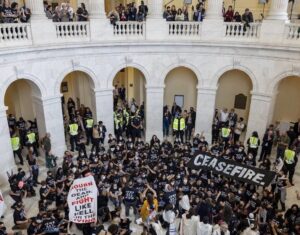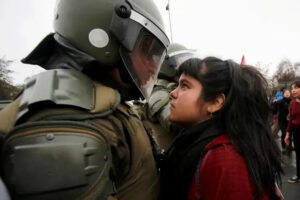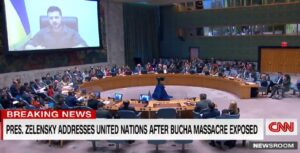One Global Democracy

A new movement for inclusive global governance
It’s time for a new approach that works in today’s world.
Things are not going well. Yet most people agree on the actions we need to take. The issue is that we have outdated processes that are holding us back.
 From climate to far-right extremism, from Gaza to Ukraine, today’s main challenges are global. Yet we don’t have a global system. We are organized in a deeply fragmented, country-by-country way. Countries, by definition, are accountable to nobody beyond their borders. They’re designed only to advance their own interests, not to work together.
From climate to far-right extremism, from Gaza to Ukraine, today’s main challenges are global. Yet we don’t have a global system. We are organized in a deeply fragmented, country-by-country way. Countries, by definition, are accountable to nobody beyond their borders. They’re designed only to advance their own interests, not to work together.
The inadequacy of this model is clear. It’s unrealistic to expect to solve global problems by working as disconnected and competing countries.
We can fix this, but we have to make some changes.
What is needed?
 We must create a global governance layer, which for practical purposes doesn’t exist today.
It must be democratic, because a voice for everyone is the best antidote to corrupt rule by a few.
It must include everyone, because we all have a stake in survival, and we all count.
Of course, local decision-making usually works best, when it fits the scale of the problem. But for big, global issues we also need a global governance layer.
We must create a global governance layer, which for practical purposes doesn’t exist today.
It must be democratic, because a voice for everyone is the best antidote to corrupt rule by a few.
It must include everyone, because we all have a stake in survival, and we all count.
Of course, local decision-making usually works best, when it fits the scale of the problem. But for big, global issues we also need a global governance layer.What can we do?
Two things:
 1. Together, we can create a new conversation, moving this audacious idea from the margins to the mainstream.
1. Together, we can create a new conversation, moving this audacious idea from the margins to the mainstream.
It starts with the simple act of talking about it, which anyone can do. Including you.
The FAQ’s to the right address common questions you or your friends may have. Let us know where we’re missing something or you get stuck.
2. We can build a new advocacy organization, at a scale that will matter.
There will always be opposition from interest groups with deep pockets, resisting change. Oil companies and petro-states, for example. The only way to overcome their entrenched power is with lots of people speaking up and taking action together.
 That’s why almost every cause has big organizations working to advance it. Think of the Movement for Black Lives, 350, Sunrise, Emily’s List, Freedom to Marry, or United Farm Workers. These advocacy organizations are the crucial ingredient for social change. The bad actors have unlimited money, so to beat them we need massive numbers of people. The real work is to bring those people together in a big, new organization pushing for change. That’s how we win.
That’s why almost every cause has big organizations working to advance it. Think of the Movement for Black Lives, 350, Sunrise, Emily’s List, Freedom to Marry, or United Farm Workers. These advocacy organizations are the crucial ingredient for social change. The bad actors have unlimited money, so to beat them we need massive numbers of people. The real work is to bring those people together in a big, new organization pushing for change. That’s how we win.
 And we can win. For example, look at how marriage equality moved from a fringe issue to law of the land in just 15 years (from roughly 2000 to 2015). This was driven by advocacy organizations and a conversation across our society.
And we can win. For example, look at how marriage equality moved from a fringe issue to law of the land in just 15 years (from roughly 2000 to 2015). This was driven by advocacy organizations and a conversation across our society.
There are more than 1 million nonprofit organizations in the US alone. Yet, amazingly, there is not a single large-scale organization calling for inclusive, democratic global governance.
It’s time to create one, and quickly.
Fortunately, we have a fast path at our fingertips to do this, via a partnership with Global Citizen, a huge organization which shares our values but is focused on other issues.
We can also leverage the credibility of dozens of globally recognized leaders who have recently called for a move toward more participatory and democratic global governance.
What we can accomplish
1. Conversation + organization = movement
 With a new conversation, driven by a big organization, we can generate a movement for global governance that works.
With a new conversation, driven by a big organization, we can generate a movement for global governance that works.
World leaders from Biden to Zelensky are already calling for global governance reform. Thought leaders ranging from the late Madeleine Albright to Ann-Marie Slaughter and many more have made similar calls in greater detail. And the United Nations is holding a Summit of the Future this September, inviting everyone to envision improvements in our global systems.
But today all this is going nowhere, because one crucial ingredient is missing: a massive group of organized people calling for inclusive, democratic global governance.
We can create the organization we need right now, by partnering with Global Citizen to launch with a huge initial audience and list. Filling a vacuum, we’re likely to grow quickly, as we’ve seen in the origin stories of major groups like Avaaz and MoveOn (which our founder played a part in).
A movement, reinforcing and amplifying world leaders’ calls for reform, and pushing for more, can generate real change.
People demanded a change in the aftermath of World War II, and the UN was born. The UN is inadequate, but it shows we can create something new when people demand it. The International Criminal Court, established in 2002, is another example.
2. A counterweight to authoritarian nationalism
 The climate crisis, soaring inequality, and pervasive economic insecurity are fueling the rise of nationalist strongmen, both here in the US and worldwide. It’s understandable: systems are failing, so people gravitate to regressive, empty displays of strength.
The climate crisis, soaring inequality, and pervasive economic insecurity are fueling the rise of nationalist strongmen, both here in the US and worldwide. It’s understandable: systems are failing, so people gravitate to regressive, empty displays of strength.
We know, in our hearts and from polling, that people crave a more unified future.
But today there is no sustained force moving us toward unity. And no popular narrative to break through our isolation and reinforce our belief in this better future.
Instead, we see only episodic responses from today’s organizations, and too-little-too-late reactions from world leaders.
So people lose hope and disengage, and then things get even worse, in a vicious cycle.
We can shift this dynamic by stepping up together.
3. Impacting current debates
 In the US and elsewhere, our policy fights are lopsided, especially on global issues. The right wing, backed by criminal dictators like Putin, marches in lockstep.
In the US and elsewhere, our policy fights are lopsided, especially on global issues. The right wing, backed by criminal dictators like Putin, marches in lockstep.
A few brave leaders oppose them but struggle to prevail, because there’s no visible movement encouraging enough officials to get off the fence and do the right thing.
For example, one party uses immigration as a cudgel and the other caves in, because they see no popular support for global unity.
Ukraine, our front line against Putin, has lost too many battles for lack of ammunition, because US elected officials don’t see a strong movement for international solidarity.
In Gaza, Palestinians face genocide. Israel’s lobby dominates the debate, with heroic opposition from humanitarian Jewish groups, but there’s no visible movement for the larger whole strong enough to change the political calculus yet.
On climate too, breakthrough wins like the Inflation Reduction Act are few and far between, while international conferences under the Paris Agreement fail every year to produce real action. Instead, countries cling to the delusion of separateness. Here too, policy makers aren’t seeing a strong enough popular movement for global unity.
By building this new movement, we can shift the dynamic on these current issues, even as we advance toward a fundamental structural change so we can fix them more directly.
Why now?
 For too long, we’ve left global politics to heads of state and other insiders. It isn’t working, and the world is coming apart.
For too long, we’ve left global politics to heads of state and other insiders. It isn’t working, and the world is coming apart.
Our biggest problems are all global, but we lack a global system to address them.
The time is now. We have a plan and a pathway.
Let’s take the first step. Let’s start the conversation.
What are your ideas?
Tell us here.
What is Democracy?
Maybe not what you think.
Real democracy means everyone has a voice, and our voices count in shaping policy. We’re a long way from that now: in the US, all we’ve known is voting every few years for politicians who mostly ignore us once elected. That’s not really democracy. And people know it
Many reforms are needed.
One that should be part of the mix is adding a global layer. We need one urgently, because so many bad actors exploit our fragmented international system to harm other people while dodging accountability. Think of wars, carbon emissions, election interference, offshoring wealth, or sham corporate headquarters. Only a global layer can fix this.
How would it work?
It could work in various ways, ranging from the “representative” model we’re familiar with to newer approaches that use today’s technologies to enable a more responsive system.
One current proposal is to add a Parliamentary Assembly to the United Nations. All the world’s people would directly elect this body, rather than have the participants named only by our national governments (as they are in the UN General Assembly). This would complement the UNGA, just as the US House of Representatives complements the US Senate.
The UN Parliamentary Assembly option is perhaps the most achievable path to global governance, because it’s the most conventional. But as long as we’re thinking globally, this is also a good time to consider more ambitious approaches.
One cutting-edge alternative is Liquid Democracy. It’s very different, which makes sense because the “representative” model is based on ancient technology - It was created back when horse and buggy were state-of-the-art communications. Many modern technologies offer improvements. Especially the internet and blockchains.
If we were designing a voting system from a fresh start today, how might it work?
In a Liquid Democracy system, each of us could vote directly on policy if we want to, or we could delegate our vote to someone else to vote on our behalf. We could choose anyone we trust, not just career politicians. It could be a friend, a neighbor, our spouse, a smart classmate, or an author we respect. If we lose confidence in that person, we could take our voting power back and use it ourselves, or reassign it, instantly.
We could vote from wherever we are. We could vote as often as we want. We could change our minds and course-correct quickly when needed.
We could de-link voting from geography, which would be helpful for global issues. It would also address the imbalance of rural vs. urban power today.
Bedrock human rights could still be protected by constitutional courts, approximately as they are today, only with more stability, because a more responsive voting system would leave less room for courts to change laws arbitrarily.
Tradeoffs
Paper ballots are considered the gold standard today, but they’re vulnerable to destruction and don’t scale easily.
No voting system is perfect; tradeoffs are inevitable. Today we’re sacrificing participation, the wisdom of crowds, and ballot security for the sake of anonymity. It’s a reasonable choice, but we’re not getting the outcomes we need — things generally aren’t working — and our vote counts are often questioned.
What if, instead, we prioritized participation, and could vote from anywhere? With more regular people voting, common sense would prevail more often, instead of extremism.
It’s not as simple as just voting on a website - security, anonymity and unique voting accounts are still critical - but it could be possible.
This may be the right use case for blockchains.
Blockchains, Srsly?
Blockchains have begun catching on because they offer an indelible record, along with fairly strong anonymity.
Their anonymity is not perfect: identities behind accounts can be cracked, but this is resource-intensive so it doesn’t scale.
Blockchains use a lot of energy. But so does the sprawling apparatus of our current voting system. (We have more than 10,000 election jurisdictions in the US alone, each staffed by people who sometimes make mistakes, and who mostly drive to & from work, where their offices are powered mostly by fossil fuels. And then there are 150+ million voters who drive to & from voting, or mail in their ballots, also involving fossil fuels.)
Our current system is vulnerable both to human error and to deliberate corruption, in ways that blockchains simply aren’t, by design.
And our current system is failing to deliver governance that protects our rights, responds to key threats, provides baseline social investment, and frees us to live the lives we want. The system we have isn’t working, and its failures threaten our survival.
Enabling everyone to vote on a blockchain could fix this. Everyone could participate much more often, if they want to, delivering much better outcomes. And it could scale worldwide.
We could actually fix the climate, stop wars, hold Putin and Netanyahu accountable, limit the power of corporations, tax the excess wealth of billionaires and oil companies, and deploy it more equitably, e.g. by providing education for everyone.
It might be worth the energy investment.
Keeping Local Things Local
We already have local, county, state, and national governments, nested inside each other. Extending this pattern, our mission is to add a global layer. But that doesn’t mean all the decisions should be made at the global level. Instead, we’d keep the principle of subsidiarity.
Decisions on zoning and traffic lights, for example, should still be local. Transportation might be decided at metro or state level. Water rights could be decided regionally.
For climate, human rights, migration, taxing billionaires, and holding criminal dictators accountable, we need a global layer.
Realistically, How Could We Get There?
The path is essentially: build & show public support, then get elected officials to enact this change, just as we & they do when passing other legislation or ratifying treaties.
It will take a lot of work, and it’s necessary, worthwhile, and urgent.
The first stage is talking about it, which is what we’re doing here, and you can do wherever you are. Creating a conversation will give more people an impetus to consider this idea, and then to talk about it again with other people. It’s an idea whose time has come, so it’s likely to spread.
One early way we can demonstrate support is by passing local resolutions in our towns and cities, just as we do when advocating for other big reforms.
The state level is next: we can identify champions in our state governments and push for legislative resolutions, or even referenda, calling for global governance reforms.
As support builds, we can up-level again and advance resolutions in Congress.
The process will differ in other countries, but the gist is a two-track approach: (1) build the conversation, which will spread organically, and (2) show public support, paired with appropriate pressure on elected officials.
Not every country will come on board right away, but it’s important to get started. The UN began with 51 countries; today more than 190 participate.
Precedents
The US Constitution was born in a comparable situation. Originally, the United States consisted of 13 separate colonies, bound only loosely together under the Articles of Confederation. The colonies found that this structure was inadequate to deal with pressing threats, so they changed it, opting for a more unified approach under our current Constitution.
The United Nations was created after World War II, amid a widespread consensus that we must work together to prevent similar wars in the future. The UN has been a step in the right direction, but it has many flaws that are widely acknowledged today. It’s overdue for an update.
The European Union came into existence gradually, through a series of treaties between member countries, focusing first on commerce in coal and steel, and gradually expanding to include a European legislature and free movement of people across borders within the Schengen Area.
International trade agreements, though often controversial, are regularly proposed and negotiated, typically standardizing policies across participating countries, and often ceding some national sovereignty to a supra-national entity such as the World Trade Organization. Whatever one thinks of the merits of these policies and bodies (and there’s a lot wrong with them), it’s undeniable that they comprise an ongoing precedent in international governance.
These precedents point the way forward for us: with enough support, we can propose, enact, and ratify international treaties covering any subject matter we choose.
Do People Really Want Global Governance?
It also shows that:
- People support the UN but they want it reformed, and they want it to play a more active, more protective role. They have doubts about its effectiveness today.
- People support the International Criminal Court and want more international courts.
- People want global climate enforcement.
- And people are broadly open to increasing migration across borders.
Is This Nuts?
These people don’t seem to think so. More than 75 world leaders across the fields of politics, business, entertainment, journalism, and academia have all embraced aspects of the idea of inclusive global governance.
Who Would Run It?
The core concept of democracy is that we all run it. This can be hard to imagine because we’ve experienced so little of this in our lifetimes. But it’s what we must build.
The more people participate in decision-making, the less room we leave for bad-faith actors to hijack power for their own narrow purposes.
Aren’t Things Moving in the Opposite Direction?
Yes. The world is being pulled apart, just when our survival depends on working together.
We’ll need to build a big political force, quickly, to turn this around. We can do this & it’s our mission.
Shouldn’t We Fix Our Democracy at Home First?
Reform at every level is needed. But it’s hard to fix things within any country when bad actors can exploit the limits of national sovereignty to undermine our democracy.
For example, there’s extensive evidence of former President Trump’s close working relationship with Russia and President Putin.
We currently have no adequate way to prevent this international subversion of our democracy. It’s another major reason we need a global governance layer.
What About Misinformation?
Misinformation is a huge problem and it’s putting democracies at risk. A lot of it is driven by Russia and China. So without global governance, the best we can do is try to block it, or counter it. These are weak responses and so far they’re not working.
With a global governance layer, we could collectively take steps to prevent this from happening everywhere.
Why Not Just Federate the Countries?
Federating the world’s countries into a single global entity would be a good step forward. The idea is almost 100 years old, and it helped lead to the formation of the UN.
But it may no longer be the best we can do. Technology has come a long way in this period.
Federation still means countries are the basic unit of power, and this is a severe limitation. Even if we limit the ability of countries to veto or opt out of decisions (strengthening the UN), in the best case we have a situation akin to the US Senate or Electoral College, where arbitrary lines on a map distort and subvert democracy, by privileging some places over others.
We need global democracy based on the principle of one person, one vote — not one country, one vote.
Why So US-Centric?
The examples here are mostly from the US, simply because most of the people we can reach organically, to start this conversation, are in the US. But the principles are universal.
The point is to include everyone, everywhere, so our pitch materials here will adapt as our reach spreads.
What About These Other Organizations?
Avaaz does incredible work generating global cooperation but its organizing model is episodic, acting on the immediate issues of the day, rather than building a sustained campaign for global governance. Avaaz will only prioritize an issue for sustained focus when its members call for it, an unfortunate chicken-and-egg problem. Avaaz members strongly support participatory global governance when polled, so we believe Avaaz will join this campaign once we build sufficient momentum.
Global Citizen stands ready to partner with us to enable our launch, if we can raise the necessary seed money. Their 5 million young idealist members worldwide would be a perfect base to start from, and their access among heads of state and celebrities is unparalleled.
Citizens for Global Solutions and Democracy Without Borders are doing important work advocating for global governance, but both are very small, with minimal organized grassroots support. So, unfortunately, policy makers pay them little heed.
There is currently no large grassroots organization dedicated to the cause of democratic global governance. Our mission is to fill this vacuum.
What Are We Missing Here?
Share your perspective here.